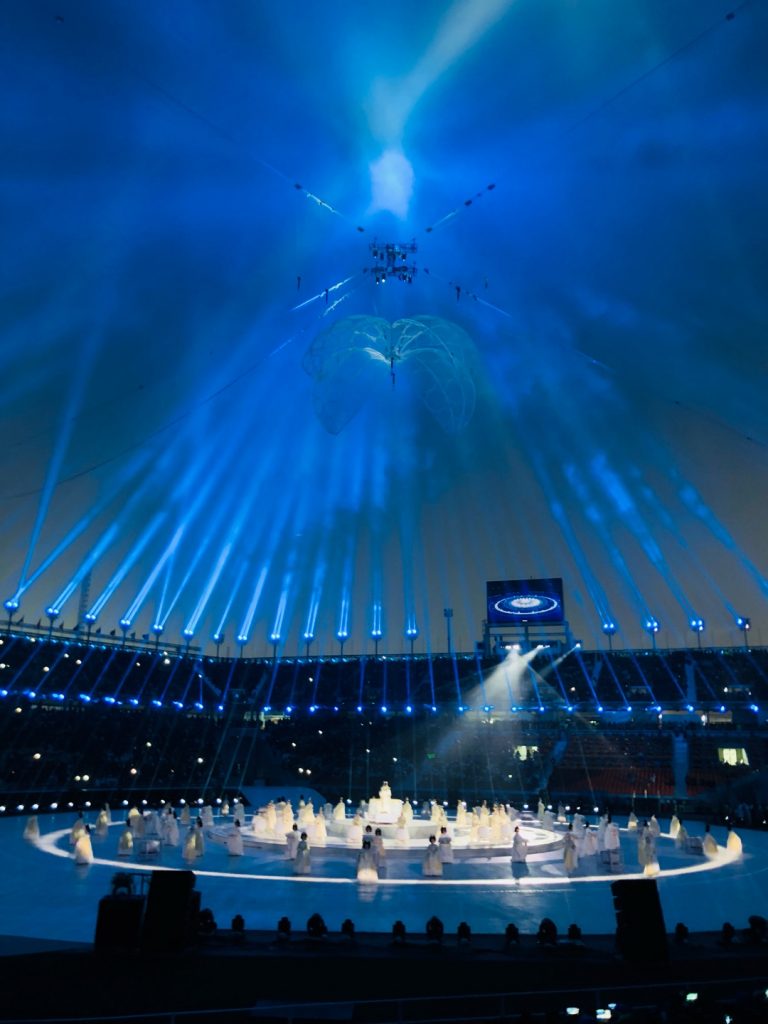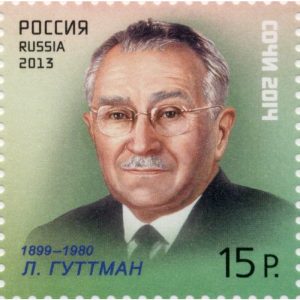
With considerable anticipation, the PyeongChang 2018 Winter Paralympics opened Friday, March 9. The idea is “5o enable Para athletes to achieve sporting excellence and inspire and excite the world.”
Photo: Kim Youngjoon, via Wikimedia Commons
Last month, we thrilled to the majesty of the PyeongChang Olympics. The saga continues! At the 2018 Winter Paralympics, from March 9 to 18, some 670 athletes from 46 nations will compete in six sports: alpine skiing, biathlon, cross-country skiing, ice hockey, snowboard, and wheelchair curling. This number is a 24 percent increase over the 539 athletes at Sochi 2014. Most notably, among women, this number represents a 44 percent rise.
Women Who Soar
With that in mind, we continue our homage to strong women with disabilities around the world who have succeeded admirably, with International Women’s Day and Women’s History Month. A Washington Post special supplement, features five “Women Who Fly” who tell their stories and the journeys they took to get there.
How It Started—and Now
Athletes with disabilities had been competing in the regular Olympic Games long before there were the Paralympics. In 1904, at the Saint Louis Olympics, German-American gymnast George Eyser, with an artificial leg, won six medals in men’s gymnastics. Hungarian Károly Takács, a sports shooter who lost his right arm, won a gold medal in each of the 1948 London and 1952 Helsinki Summer Olympics by shooting left-handed. Danish equestrian Lis Hartel contracted polio at 23, leaving her paralyzed below the knees. Though she accepted her disability, she refused to accept the discouragement of people around her. She won a silver medal in 1952 in dressage; she went on to win another silver four years later, in 1956 (Melbourne).

Ludwig Gutterman (1899-1980) created the first international venue for athletes with disabilities when, in 1948, he founded the Stoke Mandeville Games in England for paralyzed World War II veterans.
The first organized international athletic competition for athletes with disabilities was in 1948. The pioneer behind this important event was Ludwig Guttman, a neurologist who specialized in spinal cord injuries, fled Nazi Germany just before World War II and was able to establish a new practice at the Stoke Mandeville Hospital in England. After the war, to help the paralyzed veterans of his newly adopted nation, he established the International Wheelchair Games, which took place the same time as the regular Olympic Games in London. In 1952, Dr. Guttman opened the competition to Dutch veterans, making it an international event.

The red, blue, and green of the International Paralympic Committee symbol represent the three most common colors among the flags the nations of the world. The shapes symbolize motion, ability in the face of disability. “Spirit in Motion” is the motto.
IMAGE IN PUBLIC DOMAIN: International Paralympic Committee, via Wikimedia Commons
The first actual Paralympic Games, open to athletes who were not war veterans, took place at the 1960 Rome Summer Olympics, and since then, these games have taken place during the same year as the regular summer Olympic Games. The 1976 Montréal Summer Olympics included athletes with disabilities other than needing a wheelchair. In 1988, the Summer Paralympics were held in the same city (Seoul) and used the facilities as the regular Olympic Games; in 1992, this was extended to the Winter Paralympics (Albertville, France). The first Winter Paralympic Games took place in 1976, in Örnsköldsvik, Sweden.
Indeed, the vision of the Paralympics is “To enable Para athletes to achieve sporting excellence and inspire and excite the world.” So, let’s take a look ahead by taking a step back, to 2016. “We’re the superhumans,” indeed. “Yes I can!” Of course, not everyone with a disability is a Paralympian. We must never engage in “inspiration porn.” However, the message is true, that it is possible to overcome obstacles, no matter how large… or small.
Paralympians Paralympics


